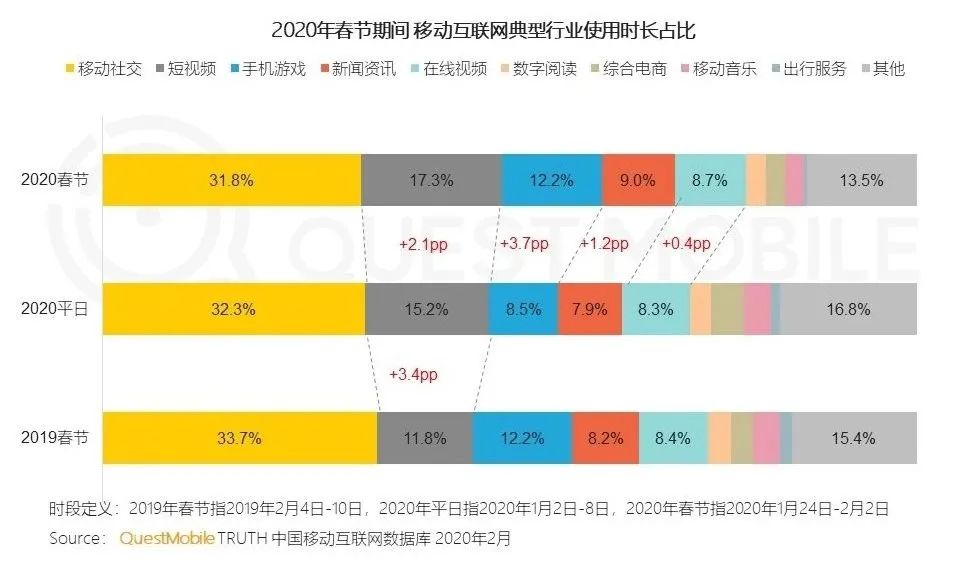What is the problem?
Editor’s note: This article comes from the WeChat public account “Internet and Entertainment Monster Group” (ID: TMTphantom) author: Pei Pei head of the monster group.
Obviously, iQiyi did not conduct financial fraud, and the short report jointly issued by Muddy Water and Wolfpack made no sense. I suggest that Internet professionals, investors, and people who eat melons do n’t have to waste time reading the short report; just look at the excerpts from various media.
A while ago, Mushui ’s shorting of Ruixing Coffee was based on a large number of grassroots survey data and correct logical reasoning; now, Mushui ’s shorting of iQiyi is based on a lot of plausible research data and errors. Logical reasoning. It must be pointed out that in the two short operations, muddy water was not the writer of the report, but the transmitter. Ruixing Coffee’s delisting is a high probability event, and iQiyi may not be affected at all.
However, iQiyi is indeed facing problems—management and industry issues. After two years of listing, iQiyi’s stock price ($ 17.30 / ADR) is lower than the original IPO offer price ($ 18.00 / ADR). In 2018, the capital market was once very optimistic about iQiyi, pushing its share price to a record high of US $ 46; in early 2019, investors still hope that it will become “China’s Netflix”. Now, more people are paying attention to the B station (“YouTube in China”), as well as the fast hands, byte beating (Douyin, watermelon) that are not yet listed. The popularity of the entire long video industry is declining rapidly, and iQiyi is no exception.
I think that iQiyi is superior in management and executive level. Compared with competitors, iQiyi understands content better and spends money wisely. It has far less traffic and financial support from its parent company than its two main competitors (Tencent Video, Youku), but it has made greater achievements. So, what is the problem?

The problem lies in the industry-long video is an industry with a very unfavourable competitive landscape and many development obstacles. In the past few years, the pattern of the long video industry has not fundamentally improved. I estimate that it may take another 3-5 years for this industry to overcome many fundamental problems. In the final analysis, this is caused by the general trend: no matter how hard the management of iQiyi or Tencent Video or Youku is,Too likely to change in the short term.
I personally think that the problems faced by the long video industry are mainly the following three:
1. Any Internet giant is reluctant to give up the user time brought by long video, which makes the competition slow to “settling the dust.”
2. The inherent “inertia” of the film and television industry is too strong, and the Internet industry has wrong steps to implement it.
3. In the process of integration of the long video industry, more brutal and powerful competitors have emerged.
Firstly, let ’s talk about the first one: any Internet giant is reluctant to give up the user time brought by long video, which makes the competition unable to “settle”.
All Internet giants in China suffer from “traffic hunger”: eager to keep users on their own platforms, eager to occupy users for the length of time. Long videos are an excellent “time-killing tool”: an episode of domestically produced episodes has an average of 45-50 minutes, even if the user jumps to watch, it must take at least 15 minutes. The core audience of the domestic drama series is young and middle-aged women, which is also a good user of the Internet industry. In order to occupy users for tens of minutes every day, Internet giants are completely willing to pay some price; even if the price is high, they are not willing to give up.
According to QuestMobile’s statistics, during the Spring Festival of 2020, online video (long video) accounted for 8.7% of all mobile users’ usage time, second only to social, gaming, short video and news information. Moreover, the above data has not yet been included in the user time brought by smart TV / smart set-top boxes. Of course, the user duration occupied by long video has stabilized, unlike the short video is still proliferating; but in any case, this piece of traffic will not be given up by any giant.

Since 2017, people have imagined: If the “three video platforms” become two or even one big, will the long video industry be able to achieve stable profitability. Today, the integration of the three major video platforms is still far away. The market once speculated that Ali would give up or sell Youku, but Ali strongly denied it; after all, Ali’s most indispensable is money, and even if you reduce your investment in Youku, it is impossible to give up casually. As for Tencent, it is even more impossible to give up Tencent Video. Although the input-output ratio of this business is not high, it still belongs to one of Tencent’s most important businesses. Every year, some people speculate that the two of the “Big Three” will merge, but not every year.
What ’s even more terrifying is that the video of byte beating and marching into the long video is now the “present tense”: Douyin and Watermelon purchase “囧 妈” at a high price;In 2019, the “Projection Hall” (ie long video) function will be strengthened. In the future, Watermelon is likely to develop into a “long video / short video mixed” content model like station B. The competition of the three major video platforms has just reached balance; if added to the fourth largest, and the fourth largest with vitality and no shortage of money, the fragile balance may quickly disappear.
Quick hand is another giant that may enter the long video. It has registered its own film and television company; previously, it acquired station A and has a two-dimensional video foothold; it is experimenting in e-commerce and games, and long video is definitely a strategic direction. Whether it’s byte bounce or fast hand, it probably won’t smash money in the long video unlimitedly; however, as long as they maintain a strategic presence in the long video field, competition in this field will never settle.
Even if we wait another 3-5 years, it is difficult for us to see the day when the “three big” video platforms become “two big”; maybe it will become “four big” or even “five big”. This long war may never end.

Regarding the second one: the inherent “inertia” of the film and television industry is too strong, and the Internet industry has wrong steps to implement it.
Before the birth of the Internet industry, China’s film and television industry already possessed tremendous strength and a long history. As early as the 1980s, Chinese movies entered the golden age; in the 1990s, Chinese TV dramas were already very developed. In the early 2010s when Internet companies vigorously deployed long videos, China’s film and television industry experienced another peak period driven by economic growth and capital.
In the final analysis, the long video industry is nothing more than an extension of film and television content on the Internet platform. The larger the inherent size of the film and television industry and the stronger the “inertia”, the harder it is for the Internet industry to transform it. To put it bluntly, film and television practitioners are also reluctant to be “transformed” by the Internet, but just want to use the huge traffic and capital brought by the Internet. From this perspective, the luck of the long video industry is very bad. Compare it with other Internet segmentation industries:
Game industry: In the 1990s, China ’s PC stand-alone games were very weak, with few console games. In the early 2000s, Internet companies such as Shanda, NetEase, and Tencent faced almost blank paper and were free to paint. It is no exaggeration to say that the Chinese game industry has been carrying a profound “Internet branding” since its early development. Most practitioners are accustomed to the way of thinking of Internet companies and regard themselves as a member of the Internet industry. In terms of users, the vast majority of Chinese players have accepted online games very earlyFew people still remember the memories of the era of stand-alone and console games. In China, the game industry does not need to be reformed at all, it is a native component of the Internet industry.
Retail e-commerce industry: China ’s retail industry was already very large in the 1990s, occupying a lot of resources and user minds. The earliest batch of Chinese retail e-commerce platforms, such as 8848, eBay, and eBide, failed to grow; Ali was engaged in B2B rather than retail e-commerce early. Since 2003, Ali and JD.com have begun to transform the retail industry in two different directions:
-
Taobao ’s approach is to start with C2C (more like early eBay, now idle fish), and slowly transition to low-end B2C, accumulating user base and commodity resources in the process; around 2011, The plump Taobao entered the brand B2C under the banner of “Tmall” and achieved staged victory through several years of fierce battle. From C2C to low-end B2C to high-end B2C, it can be regarded as a path for Taobao e-commerce to gradually transform the retail industry; without the solid foundation laid by the first two stages, there can be no third stage.
-
JD.com ’s approach is to be a big retailer by itself, with its own inventory, logistics and even financial system. In the early days, investors generally suspected that this model was too heavy and the efficiency of resource utilization was too low; but after the scale effect was formed, JD.com proved that it could reach a balance point. Self-operated e-commerce means transforming from within the retail industry, not as an Internet “outsider”. Strictly speaking, until today, JD.com has always been “a retail company with an Internet color”, not a “retail e-commerce company.”
Obviously, the development path of the long video industry cannot be the same as the game industry, because before the rise of the Internet, the film and television industry was already very huge. According to the logic of the e-commerce industry, Internet companies should take the following two paths to transform the film and television industry to form a sustainable long-video industry:
-
Starting with UGC and gradually developing to PGC, PUGC has been given enough flow and growth space to accumulate user base and understanding of content during this process. After thoroughly consolidating the foundation of PUGC, then enter the “head content” of super dramas and super blockbusters,And don’t be greedy for more, take a steady expansion. Because the foundation laid in the UGC / PGC stage is strong enough and the content ecology is diversified enough, the expansion in the head content stage can also be achieved with less effort. (Amoy mode)
-
Create content yourself from the beginning; I mean, do it from start to finish, rather than spend a lot of money on the script and find a few famous drama companies to undertake the production. Build your own film and television studio and train your own producers and directors; even if it is not wholly-owned, it must at least be internally incubated and locked in a long-term contract. The same is true for variety shows. Use self-made, own copyrighted high-quality content as the “killer” of the video platform. (JD.com model)
Smart readers will find that the first “Amoy mode” is actually the B station mode, and the second “Jingdong mode” is actually the Mango TV mode! They are also precisely the two long video platforms with better financial performance and higher user stickiness (the former is a long video / short video hybrid platform). In other Internet sub-sectors, this phenomenon seems incredible: Why are the three largest platforms generally suffering huge losses and low user stickiness, and the two smaller vertical platforms are like fish? The problem lies in the growth model!
In the initial period, iQiyi, Youku, Tudou, etc. did use PUGC as the main force, but this stage is very short. Ever since the “Zhen Huan Biography” opened the curtain on the video platform procurement drama, the “Head Content Arms Competition” has never stopped. The three major video platforms have been prematurely drawn into the battlefield of head content without consolidating the user base, forming content tonality, or even stabilizing the organizational structure. This played a destructive role on their development path:
For users, the three major video platforms have never had time to cultivate enough “content tonicity” (iQiyi is slightly better), and they have been kidnapped by head dramas and head variety shows. Which video platform to log on and which VIP to buy basically depends on which one has the latest and best header content. The head content bought with huge sums of money squeezed too much traffic, and PUGC creators were squeezed out and invested in B station, Kuaishou, Douyin, and Watermelon-in the end, they all became “content-toning” platforms.
For the film and television industry, the three major video platforms have brought huge resources and a certain right to speak, but they have never “deeply penetrated” the industry. The pressure of competition is too great, and the contention for the header content is too fierce, so that they have no time to understand the content itself (Iqiyi has already doneIt ’s the best), establish your own content team, and cover all aspects of the film and television industry; the three major video platforms are actually not strong enough to bargain with the head content party. Before the introduction of the salary limitation order, the long video industry actually turned into working for front-line stars and producers.
Comparing to the e-commerce industry, it is like: Taobao hurried into the brand e-commerce war when its wings were not full and accumulated enough resources around 2007, and it spent a lot of money to buy the head brand’s “exclusive network-wide “Selling rights”; worse, JD.com also adopted the same strategy at the same time, perhaps Vipshop also adopted the same strategy … The e-commerce platform has become working for the head brand, without forming features and user stickiness , Has not even formed a perfect operating system. Of course, the head brand is happy, they can sit and collect money, leaving the huge losses to Taobao and Jingdong; instead of being restricted by Taobao e-commerce, as in reality.
Finally, the third article: During the integration of the long video industry, more brutal and powerful competitors have emerged.
This article needs no elaboration. The rise of short videos and the continuous iteration of live broadcasts have suppressed the length of long video users. Since 2018, brand advertisers are more inclined to have high conversion rates and flexible short video ads, which in turn suppresses the monetization ability of long videos. The ascending category of e-commerce delivery is almost completely divided by short video and live broadcast platforms. “Long video / short video hybrid platforms” like Station B and Watermelon are increasingly eroding the field of traditional long video platforms.
Because the long video industry has been unable to complete internal integration and has been unable to realize its own hematopoietic mechanism, it cannot give a strong answer to the challenges from the short video and live broadcast industries. For the above problems, there are already many researches and analyses on the market, so I will not repeat them here.
However, we do not have to be too pessimistic about the future of the long video industry. After a long trial and error, the three video platforms have cultivated some teams and accumulated a lot of experience; they have enhanced the right to speak on the content side of the head. The demand of Chinese viewers for long video content is still very high, and the potential willingness to pay is also very strong, which is incomprehensible in muddy water. IQiyi’s management and execution are actually stronger than its main competitors. Therefore, the short report issued by muddy water is not worth refuting.
The problems with iQiyi, Tencent Video and Youku have nothing to do with muddy water. The long video industry has chosen (passively) an incorrect development path in the past, and the competitive landscape has been slow to stabilize and has been protractedThe war failed to achieve the effect that any giant wanted. The past is over. How to avoid similar mistakes in the future is what Internet companies and even any innovative companies need to seriously consider.
-


